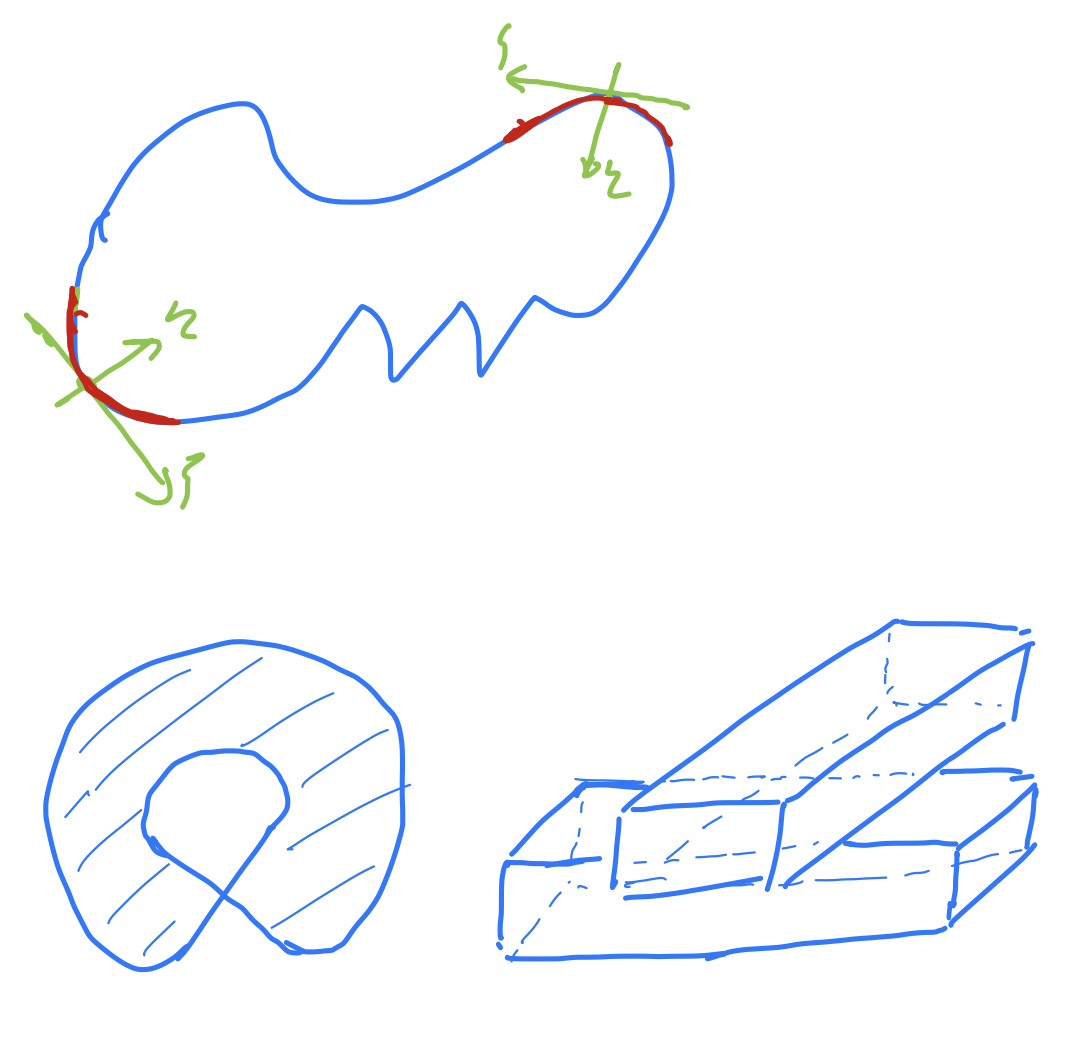14. Sobolev spaces#
For \(k \in {\mathbb N}_0\) and \(1 \leq p < \infty\), we define the Sobolev norms
for \(k \in {\mathbb N}_0\) we set
In both cases, we define the Sobolev spaces via
In the previous chapter we have seen the importance of complete spaces. This is the case for Sobolev spaces:
Theorem: The Sobolev space \(W_p^k(\Omega)\) is a Banach space.
Proof: Let \(v_j\) be a Cauchy sequence with respect to \(\| \cdot \|_{W_p^k}\). This implies that \(D^\alpha v_j\) is a Cauchy sequence in \(L_p\), and thus converges to some \(v^\alpha\) in \(\|. \|_{L_p}\).
We verify that \(D^\alpha v_j \rightarrow v^\alpha\) implies \(\int_\Omega D^\alpha v_j \varphi \, dx \rightarrow \int_\Omega v^\alpha \varphi \, dx\) for all \(\varphi \in {\cal D}\). Let \(K\) be the compact support of \(\varphi\). There holds
Finally, we have to check that \(v^\alpha\) is the weak derivative of \(v\):
\(\Box\)
An alternative definition of Sobolev spaces were to take the closure of smooth functions in the domain, i.e.,
A third one is to take continuously differentiable functions up to the boundary
Under moderate restrictions, these definitions lead to the same spaces:
Theorem: Let \(1 \leq p < \infty\). Then \(\widetilde W_p^k = W_p^k\).
Definition: A domain is called a Lipschitz domain, if its boundary \(\partial \Omega\) can be locally represented by a Lipschitz-continuous function.
Are these domains Lipschitz domains?

A precise definition which applies also to unbounded domains is the following:
Definition: The domain \(\Omega\) has a Lipschitz boundary, \(\partial \Omega\), if there exists a collection of open sets \(O_i\), a positive parameter \(\varepsilon\), an integer \(N\) and a finite number \(L\), such that for all \(x \in \partial \Omega\) the ball of radius \(\varepsilon\) centered at \(x\) is contained in some \(O_i\), no more than \(N\) of the sets \(O_i\) intersect non-trivially, and each part of the boundary \(O_i \cap \Omega\) is a graph of a Lipschitz function \(\varphi_i : {\mathbb R}^{d-1} \rightarrow {\mathbb R}\) with Lipschitz norm bounded by \(L\).
Theorem: Assume that \(\Omega\) has a Lipschitz boundary, and let \(1 \leq p < \infty\). Then \(\widehat W_p^k = W_p^k\).
The case \(W_2^k\) is special, it is a Hilbert space. We denote it by
The inner product is
In the following, we will prove most theorems for the Hilbert spaces \(H^k\), and state the general results for \(W_p^k\).
We define semi-norms
The null-space of these semi-norms consists of polynomials up to order \(k-1\).
